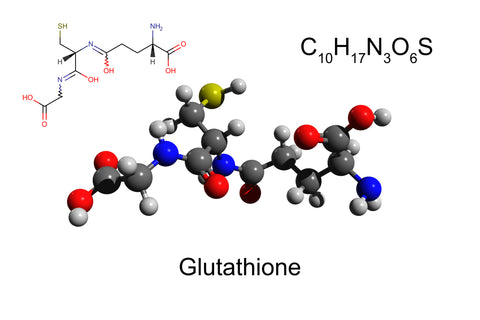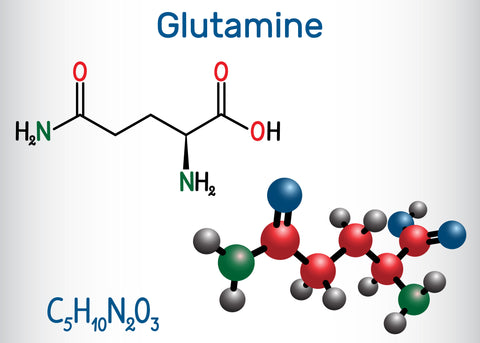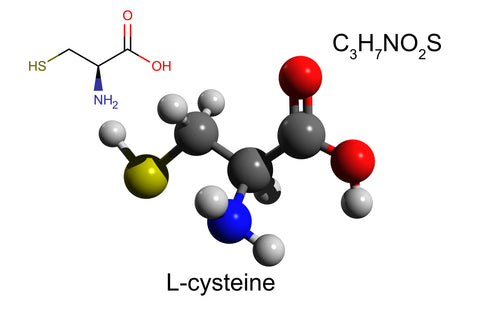
Leukemia & Cancers: Top Three Supplements To Avoid
Supplements to Avoid if You Have Leukemia & Other Cancers
Oncologists often tell patients to stop taking supplements while they are being treated for cancer—this is both good and bad advice. It is bad advice because certain supplements, like ascorbic acid, green tea extracts, etc., can suppress cancer growth, and good advice because some supplements can interfere with chemotherapy and protect the cancer.
Most oncologists need a better understanding of these relationships, so the general advice is to avoid taking supplements altogether. In this article, I want to add some clarity to the subject. Supplements can make the difference between life and death in some difficult-to-treat cancers like Acute Myeloid Leukemia (AML) by supporting the immune system and bone marrow health. Certain supplements, like green tea extract and ascorbic acid, can reduce the growth of tumor cells.
The Big Three To Avoid And Why
Glutathione, Glutamine, and NAC
Glutathione (GHS)

Glutathione (GSH) is a molecule that helps protect cells and is critical for cell balance. It acts as a scavenger for reactive oxygen species (ROS) and a regulator of the redox state, which is crucial for cell survival and proliferation. Cancer-related GSH has both protective and pathogenic roles. Higher amounts of GSH in cancer cells are linked to cancer growth, making cancer drugs less effective. This is because GSH detoxifies chemotherapeutic agents, reducing their effectiveness.
Integrative providers, naturopaths, infusion centers, etc., often tout the benefits of glutathione in treating diseases. For example, in COVID-19, glutathione has near-miraculous effects by turning the huge amounts of reactive oxygen (ROS) created by COVID-19-affected cells into water, rendering it harmless. It can also neutralize mold toxins and generally detoxify the body, which is true. GSH can also protect cancer cells, so GSH should be avoided in most cancer patients, especially high-dose glutathione IVs around chemotherapy, as they can neutralize the cancer-killing effects of many forms of chemotherapy.
Glutathione may also help cancer cells develop drug resistance.
Glutathione can have a positive role in cancer therapy as it can reduce the side effects of chemotherapy, reduce oxidative stress, and help remove toxins from the body.
Glutathione is poorly absorbed through the GI tract. Most oral forms are specially designed to improve oral absorption. The liposomal forms of Glutathione by Quicksilver Scientific and Researched Nutritionals are particularly well absorbed. Some of the more popular supplements containing glutathione:
I asked my AI system for a list of ten supplements. I have used the top four products listed and have found them very effective forms of oral glutathione.
- Quicksilver Scientific, Liposomal Glutathione - Offers enhanced absorption due to its liposomal form and is recommended to be taken with meals.
- Quicksilver Scientific, H2 Elite - A reduced and active form of glutathione that releases slowly and is NSF for Sport Certified, making it suitable for athletes.
- Integrative Therapeutics, Glutathione Cell Defense, is a liposomal formula that enhances effectiveness with anthocyanins from beetroot, elderberry, and bilberry fruit extract.
- MitoZen, GlutaMax Bullet+ - A suppository form of glutathione that includes probiotics and terpenes for increased effectiveness.
- LUMA NUTRITION, Premium Glutathione - Contains 500mg of reduced glutathione per capsule for antioxidant and liver support.
- NOW Supplements, Glutathione 500 mg - A straightforward glutathione supplement in capsule form.
- Toniiq, Ultra High Strength Glutathione Capsules - Promoted for its high strength and quality.
- Zaca, Chewable Supplement With Glutathione - This chewable supplement contains Setria, a clinically proven and absorbed form of glutathione.
In summary, I would not recommend any cancer patient to use these products unless they are under medical supervision by healthcare providers who understand the nuances of using these compounds appropriately.
Glutamine

Glutamine has pros and cons. In some cancers, glutamine can be helpful. However, in Acute Myeloid Leukemia (AML), Glutamine can be particularly problematic. AML cells are highly dependent on glutamine for their survival and proliferation. Glutamine is a carbon source for synthesizing lipids and metabolites via the tricarboxylic acid (TCA) cycle. The TCA cycle, also known as the Krebs Cycle, is how our cells produce energy through ATP. Glutamine in AML cells can aid in the production of energy.
Studies have demonstrated that targeting glutamine metabolism through the use of glutaminase inhibitors, such as CB-839, can significantly impair the antioxidant defenses of AML cells by limiting glutathione synthesis. This leads to the accumulation of mitochondrial reactive oxygen species (mitoROS), which leads to cancer cell death through a process called apoptosis.
In a nutshell, taking any glutamine-containing supplement can help AML cells survive and grow.
What supplements contain glutamine?
- Most supplements support intestinal health or prevent malabsorption. The one I use the most is Metagenics Ultra GI Replenish. It is a medical food, which is the best product I have found for treating malabsorption in the small bowel.
Products Containing Glutamine (Excluding Pure Glutamine Supplements)
- Transparent Labs BCAA Glutamine
- Optimum Nutrition Pro BCAA
- MusclePharm Combat Powder
- JYM Supplement Science Post JYM Active Matrix
- BSN Amino X
- Cellucor Alpha Amino
- Kaged Muscle Re-Kaged
- Dymatize ISO100 Hydrolyzed Protein Powder
- Gaspari Nutrition MyoFusion Advanced Protein
- Universal Nutrition Animal Nitro
- Scivation Xtend BCAAs
- MuscleTech NitroTech Performance Series
- EVLUTION NUTRITION Stacked Protein
- Garden of Life Sport Organic Plant-Based Protein
- Vega Sport Performance Protein
- Quest Nutrition Protein Powder
- NutraBio Muscle Matrix Protein
- Redcon1 MRE Meal Replacement
- VMI Sports ProtoLyte Whey Isolate
- Any product containing Glutamine in its name of the product.
Some foods contain high levels of glutamine. The list is fairly extensive, so it may be impractical to eliminate all of these foods. However, you should be cautious to limit the quantity of high-glutamine foods. This is a bit confusing because almost all of these foods are considered to be healthy foods. The purpose of this list is to provide awareness of sources of glutamine in your diet.
High-Glutamine-Containing Foods
- Beef
- Chicken
- Fish
- Dairy products
- Eggs
- Beans
- Beets
- Cabbage
- Spinach
-
Carrots
- Parsley
- Vegetable juices
- Wheat
- Papaya
- Brussels sprouts
- Celery
- Kale
- Fermented foods like miso
- Casein protein
- Whey protein
N-Acetyl Cysteine (NAC)

N-Acetyl Cysteine (NAC) is a supplement well known for its antioxidant properties, which are believed to have potential benefits for various health conditions, including cancer. Its role in cancer, particularly Acute Myeloid Leukemia (AML), is intricate and poses potential challenges;
- The Antioxidant Dilemma in Cancer: Antioxidants such as NAC safeguard cells by neutralizing harmful free radicals, which can be advantageous in preventing cell damage and possibly hindering the onset of cancer. However, the relationship between antioxidants and cancer progression presents a paradoxical nature. In cancer cells, antioxidants may support the survival and proliferation of these cells by shielding them from oxidative stress that would otherwise impede their growth or result in their demise.
- Concerns Regarding Chemoresistance: There is apprehension that NAC's role as an antioxidant could not only shield cancer cells from oxidative harm but also from the impacts of chemotherapy medications, many of which rely on inducing oxidative stress to eliminate cancer cells. This scenario could potentially lead to chemoresistance, diminishing the effectiveness of conventional cancer treatments.
- Accelerated Cancer Progression; Research indicates that supplementation with NAC might hasten the growth of cancer. For example, animal studies have demonstrated that NAC supplementation accelerated lung cancer growth.
This brings up worries regarding the safety and practicality of using NAC in cancer treatment, as its antioxidant properties could unintentionally promote the growth of cancer cells.
- Varied Evidence in Cancer Treatment; While NAC has been studied for its potential to alleviate the side effects of cancer therapy and hinder the development of cancer biomarkers, the results are inconclusive. Some research indicates advantages in lessening treatment related side effects such as liver damage and nerve damage, while others show no significant decrease in oxidative stress or toxicities from treatments like cisplatin. Additionally, a large study discovered that NAC did not prevent the formation of secondary tumors in the head, neck, or lungs, suggesting its limited effectiveness in halting cancer progression.
- Effects Dependent on Circumstances; Antioxidants like NAC have differing impacts on cancer based on specific circumstances. The involvement of reactive oxygen species (ROS) in cancer has a dual nature, with ROS-induced effects being unique to the type of cancer cell and stage of cancer. This indicates that the influence of NAC's antioxidant activity may vary significantly depending on the particular context of the cancer, making its application in cancer treatment intricate and uncertain.
In brief, although NAC shows promise as an antioxidant, its application in cancer treatment, particularly in AML cases, poses challenges. This is because it may support cancer cell survival, enhance resistance to chemotherapy, speed up tumor growth and exhibit inconsistent.
effectiveness in treating cancer. These issues highlight the importance of conducting more studies to grasp the consequences of NAC supplementation among cancer patients and establishing safe usage guidelines.
NAC is a big problem in AML because AML patients may have liver issues, such as high bilirubin and elevated transaminases (liver enzymes). These issues respond to hepatitis support supplements. Here is the rub. Virtually all liver support products contain high levels of NAC, which in turn increase glutathione levels.
I have only found two liver support products that don't contain NAC.
- UltraThistle
- HTLT Supplements Liver Support
Detoxification Products
NAC is a common component of detoxification because glutathione is one of the best detoxification molecules, and NAC is used to raise glutathione because NAC converts into glutathione in the body and is easily absorbed, whereas glutathione is not.

